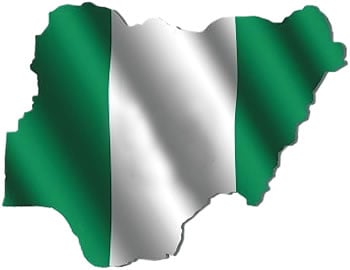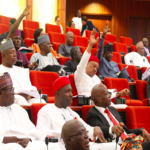TO elucidate the topic above, permit me to echo the words of Chief ObafemiAwolowo who exclaimed that while his colleagues enjoyed the company of women of easy virtue, he was always at his desk in his library “working to find solutions to the problems of Nigeria.” We therefore attribute the successes recorded in the old Western Region to Awolowo’s claim. This era was and still remains an enviable one even in the world of the children unborn. This period displayed a great sense of intellectual exercise in Nigeria’s political history. This era boasted the likes of Dr. Akinola Maja, Chief A. Odumbaku, Bola Ige, Stephen Awokoya, Agunbiade-Bamishe, S.G. Ikoku, BisiOnabanjo, Professor Victor Oyenuga, Enahoro, Profess S.A. Aluko, Professor Akin Mabogunje, Chief Bode Thomas, Chief J. S. Tarka, Peter Vande Acka and the sage himself, among a host of others.
Hence, to remain relevant as a politician before and after death, one must be well equipped and fortified with the knowledge and ideas capable of harnessing the limited available resources to solve potential economic, political and social problems.
The Action Group as a party was popular in the area of policy papers. During its era, policy papers were not just mere papers or guidelines to governance. Some of the policy papers were actually adopted as bills. In the first republic, the fear of policy papers was the beginning of wisdom in the quest for power. This period was not the period of political propaganda, but an era of meticulous research and planning capable of making the business of government rewarding. Policy papers are deeply rooted in critical and deliberate academic piece of work anywhere in the world. If the ABC of government all over the world is about the implementation of policies and programmes which bring about better welfare and standard of living, its roles therefore cannot be overemphasized either by a sitting government or an aspiring one.
Segun Gbadegesin alluded to this argument by explaining that “Action Group did not stumble accidentally on governance. It produced a number of policy papers on education, health, agriculture, rural development, transportation, industrialization, etc. as parts of its electioneering campaign for the regional elections of 1951 by June 1952 after it had taken over the governance of the region most of the policy papers had become operative as sessional papers and bills…”
To proffer solutions to any political and economic problem involves the willingness and ability of those who are in government to ascertain the problems which require solution, formulate principles to guide the government in solving those problems and work out the concrete plans and progress to resolve the problems. This must also be placed in the public domain, to enable the major stakeholders to make one or two contributions in terms of criticism and appreciation. The question therefore is, where are these policy papers? These papers disappeared a long time ago. Little wonder then that not much progress has been made in terms of fulfilling the manifestoes of political parties who found themselves not prepared for power. What we have today are political parties and politicians who are clueless about the imminent problems as well as the technical solution to these problems. There are empty constituency offices without research and development departments to study the various problems and needs of these constituencies.
Nigeria is fast digressing from modern and ideal politics which brings about dividends, giving way to a democracy that bridges the gap between the rich and the poor. This is because the bulk of our politicians fall in the category of those who enjoy the company of women of easy virtue. This is evident in the kinds of bills our representatives present in the parliament. Bills bereft of ideas and critical thinking. Let the era of proto-cabinet system return, where members of party executives are allotted portfolios to research and publish policy papers on various sectors of the economy. This will help to determine those who are sound physically and mentally, not those whose orientation differ from what Aristotle described in his Nicomachean Ethics “…even if the end is the same for an individual and for a city-state, that of the city-state seems at any rate greater and more complete to attain and preserve. For although, it is worthy to attain it for only an individual, it is nobler and more divine to do so for a nation or city-state”.
Oluwaseyi writes in via azrash2013@gmail.com
YOU SHOULD NOT MISS THESE HEADLINES FROM NIGERIAN TRIBUNE
FG Increases Hate Speech Fine From N500,000 To N5m
THE Federal Government has announced that its newly- unveiled reviewed Nigeria Broadcasting Code has provisions to increase the hate speech fine for people found culpable of hate speech from N500,000 to N5 million. This is as it said the amendment of the broadcasting code is boosting local content, among other provisions…Shall we sit here till we die?
Another Alleged N6.2bn Palliative Fraud Hits NDDC •Official Petitions Senate, Demands Dissolution Of IMC
FEW weeks after the nation was treated to mindboggling revelations of misappropriation of N1.5 billion by the Interim Management Committee (IMC) of the Niger Delta Development Commission (NDDC), the Federal Government intervention agency is in the news again over alleged embezzlement of N6.2 billion approved for palliative by President Muhammadu Buhari…Shall we sit here till we die?
Chinese Loans: $400m Project Abandoned After Completion
THE National Public Security Communication System project for which Nigeria took a $399.5million from China and has paid $76.83million as part of the principal as well as $84.92million interest has been abandoned, Nigerian Tribune can authoritatively report…Shall we sit here till we die?
China’s Greek Gift To Nigeria
A report in a British tabloid in December 2006 indicated that Britain paid the final payment on a multi-billion-dollar loan it obtained in 1945 for rehabilitation, reconstruction of its infrastructure after the devastating the Second World War. According to the report, its creditors were the United States and Canada, which Britain transferred £43 million and £12 million respectively. The original loan of $4.34bn which was equivalent to £27bn as of 2006, was drawn to prevent Britain from falling into bankruptcy due to aggravated and colossal damage caused by…Shall we sit here till we die?
WATCH TOP VIDEOS FROM NIGERIAN TRIBUNE TV
- Relationship Hangout: Public vs Private Proposals – Which Truly Wins in Love?
- “No” Is a Complete Sentence: Why You Should Stop Feeling Guilty
- Relationship Hangout: Friendship Talk 2025 – How to Be a Good Friend & Big Questions on Friendship
- Police Overpower Armed Robbers in Ibadan After Fierce Struggle






